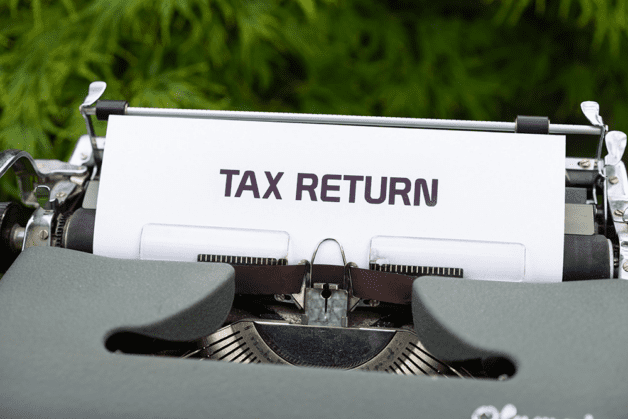
Guichet unique TVA, le glossaire pour tout comprendre
Nunc faucibus tristique varius imperdiet condimentum tellus sed risus sed. Tincidunt senectus dignissim morbi velit vel diam. Quis neque iaculis id sit in enim arcu nulla. Pellentesque maecenas blandit eget egestas. Id hac viverra pellentesque cursus sit metus. Nunc pharetra nulla at ullamcorper neque fermentum curabitur elementum.
Perdus dans le jargon du guichet unique de la TVA (Taxe sur la valeur ajoutée) ? Voici 20 définitions pour une lecture plus facile des termes clés.
Un glossaire, pour quoi faire ?
 Spécialiste de la fiscalité indirecte, nous répondons quotidiennement à vos interrogations de professionnels du e-commerce :
Spécialiste de la fiscalité indirecte, nous répondons quotidiennement à vos interrogations de professionnels du e-commerce :
- La réforme de la TVA (Taxe sur la valeur ajoutée) me concerne ? Comment distinguer les ventes BtoB des BtoC ?
- Que signifient les différents régimes Non-Union, Union et Importation?
- Que veut dire Pays tiers précisément ?
- Quels sont les différents types de ventes à distance ? Qu’est-ce qu’un fournisseur présumé ?
Et c’est au moment des explications, des références aux divers textes, que les choses se compliquent.
Fiscalead a centralisé les 20 termes incontournables. Ils vont vous aider à vous familiariser avec le langage technique du Guichet Unique. Ces mots et expressions jalonnent les directives et règlements européens relatifs à la réforme de la TVA e-commerce.
Avec ce recueil de définitions, vous ouvrirez les portes votre entrée dans l’IOSS/OSS (guichet unique TVA).
Avocats et avocats fiscalistes, ce glossaire est aussi pour vous. Vous êtes, vous aussi, confrontés aux questions de vos clients. Ils ont besoin d’absorber les termes techniques.
Guichet Unique TVA : nos définitions

Nous précisons ici la signification des termes clés. Ils vous ouvriront les portes de l’IOSS/OSS (guichet unique TVA).
- Régime non-UE – est le régime particulier applicable aux services fournis par des assujettis non établis sur le territoire de la Communauté, à des particuliers résidant au sein de l’Union européenne (UE).
- Régime UE – est le régime particulier applicable (i) aux ventes à distance intracommunautaires de biens, (ii) aux livraisons de biens effectuées dans un État membre par des interfaces électroniques facilitant ces livraisons et (iii) aux services fournis par des assujettis établis sur le territoire de la Communauté, mais non dans l’État membre de consommation
- Régime d’importation – est le régime particulier applicable aux ventes à distance de biens importés de territoires tiers ou de pays tiers
- EM – un des 27 Etat membre de l’Union européenne.
- Pays tiers – Pays ou territoire situé en dehors de l’Union européenne (dont le Royaume-Uni ou la Suisse par exemple).
- B2C – business to consumers, renvoie à des ventes de biens ou services réalisées envers des particuliers.
- B2B – business to business, renvoie à des ventes de biens ou services réalisées envers des sociétés assujetties à la TVA.
- Ventes à distance de biens – ventes à distance intracommunautaires de biens et ventes à distance de biens importés de territoires tiers ou de pays tiers, telles que définies à l’article 14, paragraphe 4, de la directive TVA.
- “Ventes à distance intracommunautaires de biens”: les livraisons de biens expédiés ou transportés par le fournisseur ou pour son compte, y compris lorsque le fournisseur intervient indirectement dans le transport ou l’expédition des biens, à partir d’un État membre autre que celui d’arrivée de l’expédition ou du transport à destination de l’acquéreur, lorsque les conditions suivantes sont réunies:
- la livraison de biens est effectuée pour un assujetti ou pour une personne morale non assujettie, dont les acquisitions intracommunautaires de biens ne sont pas soumises à la TVA, ou pour toute autre personne non assujettie;
- les biens livrés sont autres que des moyens de transport neufs et autres que des biens livrés après montage ou installation, avec ou sans essai de mise en service, par le fournisseur ou pour son compte.
- Envoi – biens emballés ensemble et expédiés simultanément par un même fournisseur ou fournisseur sous-jacent à un même destinataire, et couverts par le même contrat de transport.
- Biens de faible valeur – biens contenus dans des envois dont la valeur intrinsèque à l’importation ne dépasse pas 150 EUR (à l’exception des produits soumis à accise).
- “Ventes à distance de biens importés de territoires tiers ou de pays tiers”: les livraisons de biens expédiés ou transportés par le fournisseur ou pour son compte, y compris lorsque le fournisseur intervient indirectement dans le transport ou l’expédition des biens, à partir d’un territoire tiers ou d’un pays tiers à destination d’un acquéreur dans un État membre, lorsque les conditions suivantes sont réunies :
- la livraison de biens est effectuée pour un assujetti ou pour une personne morale non assujettie, dont les acquisitions intracommunautaires de biens ne sont pas soumises à la TVA, ou pour toute autre personne non assujettie;
- les biens livrés ne sont ni des moyens de transport neufs ni des biens livrés après montage ou installation, avec ou sans essai de mise en service, par le fournisseur ou pour son compte.»
- Interface électronique – notion à comprendre au sens large comme permettant à deux systèmes indépendants, ou à un système et à un utilisateur final, de communiquer à l’aide d’un dispositif ou d’un programme. Une interface électronique pourrait comprendre un site web, un portail, une passerelle, une place de marché, une interface de programme d’application (API), etc.
- Fournisseur présumé – assujetti réputé recevoir les biens du fournisseur sous-jacent et les livrer au consommateur final. Un fournisseur présumé a donc les mêmes droits et obligations aux fins de la TVA qu’un fournisseur. Le fournisseur présumé est l’assujetti qui facilite les livraisons par l’utilisation d’une interface électronique, tel qu’énoncé à l’article 14 bis de la directive TVA.
- Fournisseur sous-jacent – assujetti fournissant des biens ou effectuant des ventes à distance de biens importés de territoires tiers ou de pays tiers par l’utilisation d’une interface électronique.
- Intermédiaire – personne établie sur le territoire de la Communauté, désignée par un fournisseur ou un fournisseur présumé effectuant des ventes à distance de biens importés de territoires tiers ou de pays tiers comme étant la personne redevable de la TVA et responsable du respect des obligations prévues dans le cadre du guichet unique pour les importations.
Les textes encadrant le guichet unique sont les suivants : 👉 Directive (UE) 2017/2455 modifiant la directive 2006/112/CE et notamment l’article 14 sur la définition des ventes à distance, l’insertion de l’article 14 bis s’agissant des interfaces électroniques et l’article 33 disposant du lieu des livraisons de biens et prestations de services modifiés. 👉 Directive (UE) 2019/1995 du Conseil. 👉 Règlement d’exécution (UE) 2019/2026 du Conseil. 👉 Règlement d’exécution (UE) nº282/2011 du Conseil. 👉 Notes explicatives de la Commission européenne.
Le Jargon de la TVA
A compter du 1er juillet 2021, si vous êtes un e-commerçant réalisant des ventes de biens à des particuliers résidant au sein de l’Union européenne, vous pourrez profiter du guichet unique de déclaration et de paiement de la TVA (Taxe sur la valeur ajoutée).
Peu importeque vous importiez vos marchandises ou que vous livriez d’un Etat membre vers un autre. Toutes les entreprises qui réalisent des services à destination de particuliers pourront utiliser ce guichet unique.
Avec nos 20 définitions clés, vous savez :
- Quel est votre régime,
- Vous définir comme un fournisseur présumé,
- Ou si vous êtes fournisseur sous-jacent,
- Et surtout s’il vous faut un intermédiaire !
Vous pouvez préparer sereinement votre inscription sur IOSS/OSS (guichet unique TVA). Vous voulez être vraiment plus tranquille ?
Crédits photos : unsplash.com